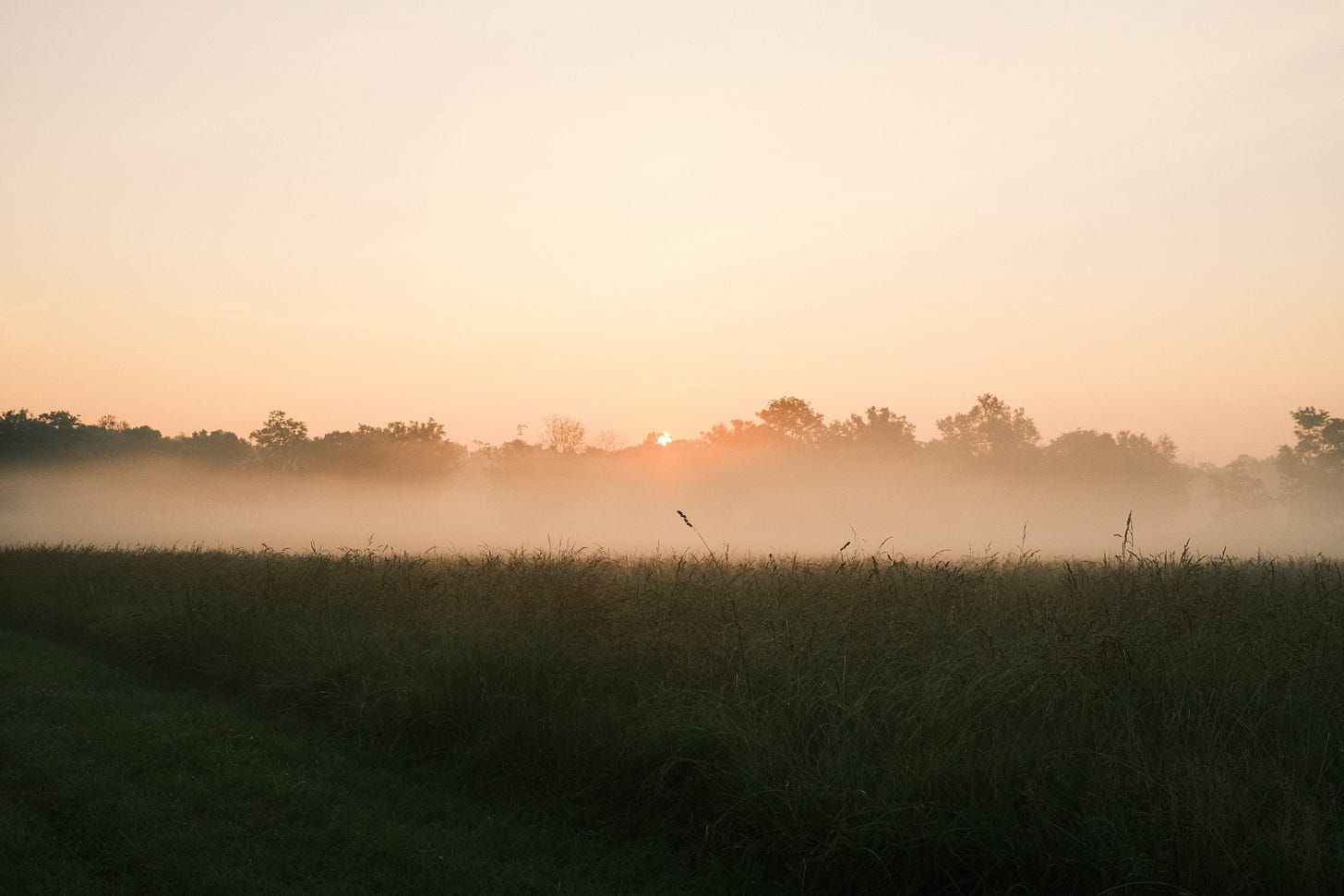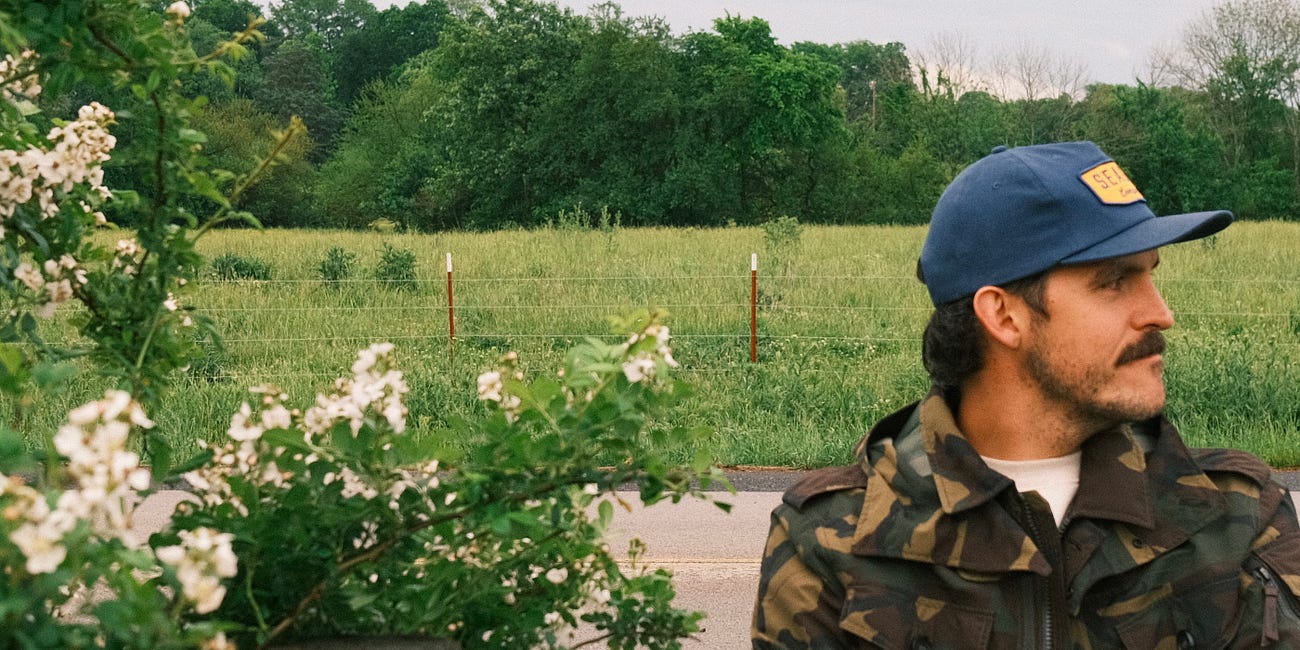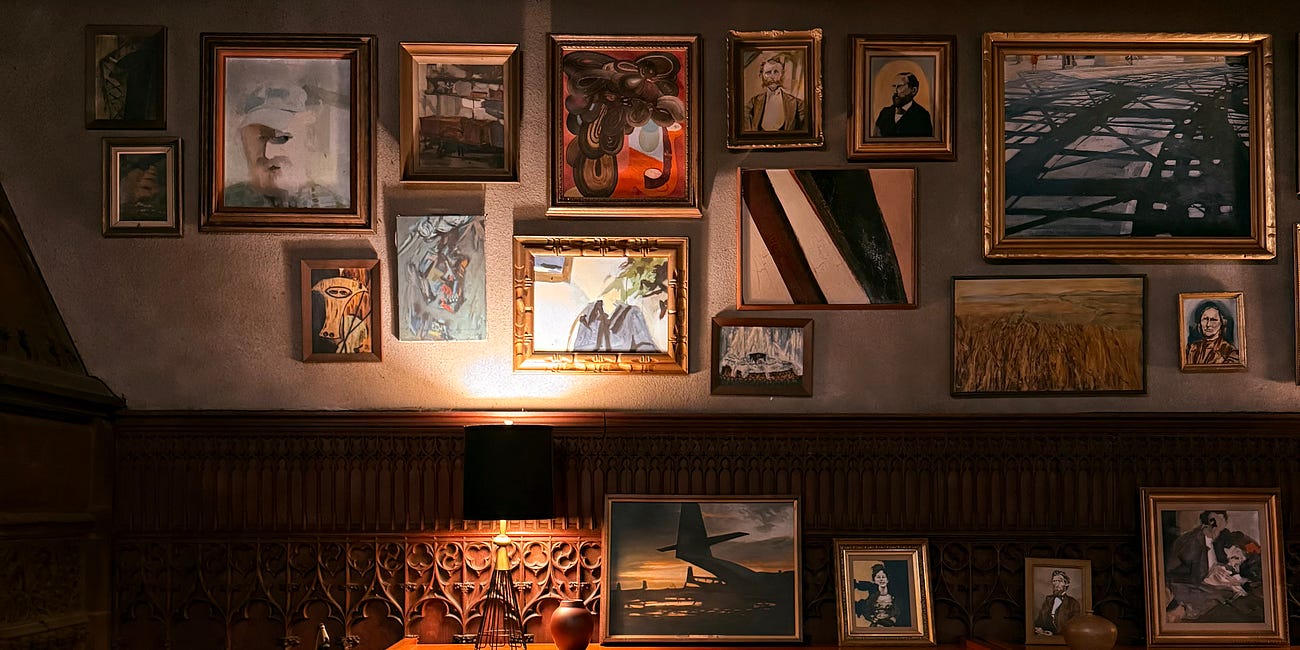This Is Drastically Changing My Creativity
Secret: it's a nervous system concern, not a lack of productivity or discipline.
There are days when I sit down to create— write, record a video, build something— and the creativity just flows.
It feels playful, free, and light even.
And then there are the other days of course.
The days where the creativity doesn’t feel creative at all. Even if do I create and share something, it mostly feels like I’m chasing approval in disguise. Or it feels like pressure. Kind of like I’m on a deadline that no one gave me and my nervous system feels rushed. Or, the opposite— I feel stuck in quicksand like I can’t move even though I want to create something.
For a while I thought that meant I was just inconsistent or I didn’t want it bad enough. That’s what the content-bros said anyway. And they seemed to be crushing it and creating left and right. So, something must be wrong with me or my process.
Maybe I’m not disciplined enough, I thought.
But over time, I’ve realized something that has drastically impacted the way I feel when I’m creating.
If you’re new here, welcome! Each week you’ll get evidence-based insights and personal stories from a licensed therapist on healing attachment wounds, creativity and cultivating healthy relationships.
I wasn’t failing at being creative. I was mostly performing to feel worthy.
Because at some point in my story I learned that my value was tied to what I could produce— what I had to give to others.
Maybe you did, too.
My full time gig is a licensed therapist, helping people work through the depths of their trauma and attachment woundings. But I’m a creative at heart. I believe we all are.
What that also means is I’m always exploring the connection between the work I do as a therapist and my creativity. In other words, I see the way we relate to others, and get stuck, in relationships is very similar to the way we relate to, and get stuck, in what we create.
Maybe you grew up in a family that praised you when you performed.
Stayed emotionally neutral, or frankly completely absent, when you were struggling.
Or avoided/shamed you for your big emotions altogether.
Maybe you received love and care that was inconsistent or conditional. Even if no one said it outright, the message began to take root deep in your body:
“If I show up strong, capable, and productive—I’ll be okay. I’ll be loved.”
This is what our nervous system does and it’s quite brilliant, really.
When secure connection isn’t readily available, we adapt at an unconscious level.
The way this often shows up for creatives, is overachievement as self-protection.
You stop creating for joy and start creating to survive, without knowing it. We do this to stay connected, to not be forgotten, to not disappoint people.
That inner presser you feel? I’m suggesting it’s not laziness, rather it’s resistance. It’s your nervous system working over time to earn something that you can’t earn: unconditional love.
And if you’re a person of faith, this can get tangled up even more.
We end up producing “for God” instead of creating with God.
I often think I’m being obedient when and doing what I “should” be doing when really, it’s from a posture of anxiety and dysregulation.
Here’s what I’ve been exploring that has helped me create from a more grounded, playful place.
Creativity doesn’t have to be performance. The more I focus on knowing the depths myself, the more I create from authenticity. The more I create from authenticity, the more it connects with people and invites them to know the depths of themselves. Which then inspires them to create from a place of authenticity. You see the flow there?
You can reclaim your creativity as something sacred. As a way to come home to yourself.
Creativity is not something to hustle or to use.
Creativity is something to tend to, like you tend to a garden, and it in turn uses you in ways you couldn’t imagine.
Maybe the heaviness you feel around your creativity isn’t a sign you’re failing.
Maybe it’s an attachment wound asking to be healed.
And the way we heal attachment wounds in a therapeutic context isn’t by rushing. It’s not by a quick fix. It’s not even by buying another program or reading a book (although those aren’t bad).
It’s by meeting your creativity with the kind of care your younger self didn’t know how to ask for.
With Care,
Blake
P.S.
If this resonated, I’d love to hear how this shows up in your life.
- What is it like to think of creativity through this lens?
- What would it look like to treat it less like a proving ground and more like a sacred space?
Let me know in the comments or hit reply to this email. I read every one.
Read my recent work:
A Therapist & A Theologian Walk Into A Bar
“If we really wanted to ruffle some feathers, we could collab and do something like ‘when a therapist and a theologian walk into a bar.’
What's the Deal with Attachment Styles?
My first 12-step meeting was 9 years ago. I don't identify as an "addict" anymore.
The #1 Question I Hear as a Therapist - And How it's Keeps Us Stuck
If you’re new here, welcome! Each week you’ll get evidence-based insights from a licensed therapist on healing attachment wounds and cultivating healthy relationships.








Creativity comes most naturally when I am not thinking too much about myself. For example, I just wrote a poem celebrating my mom's 70th birthday with all my sibling's ideas woven in. So easy because 1)I knew I would never try to publish it and 2)I didn't see the poem as a reflection of my worth. It is a celebration of someone else. I actually noticed how different this felt and was wondering if I could repeat this sort of mindset with other creative projects. Your article really resonated with me because I have been thinking about this very thing.
Okay. This means a whole lot right here. Thank you Blake.